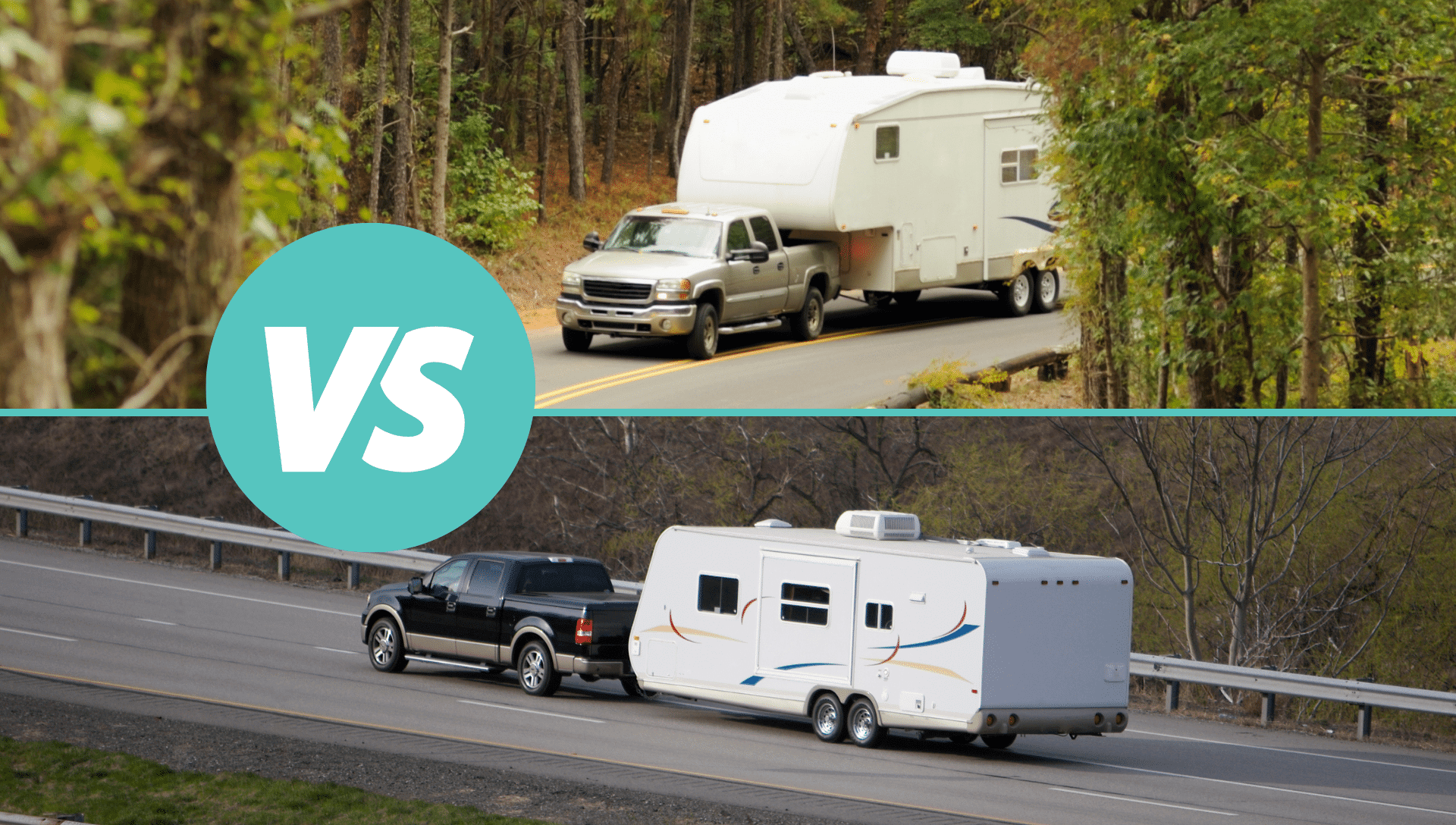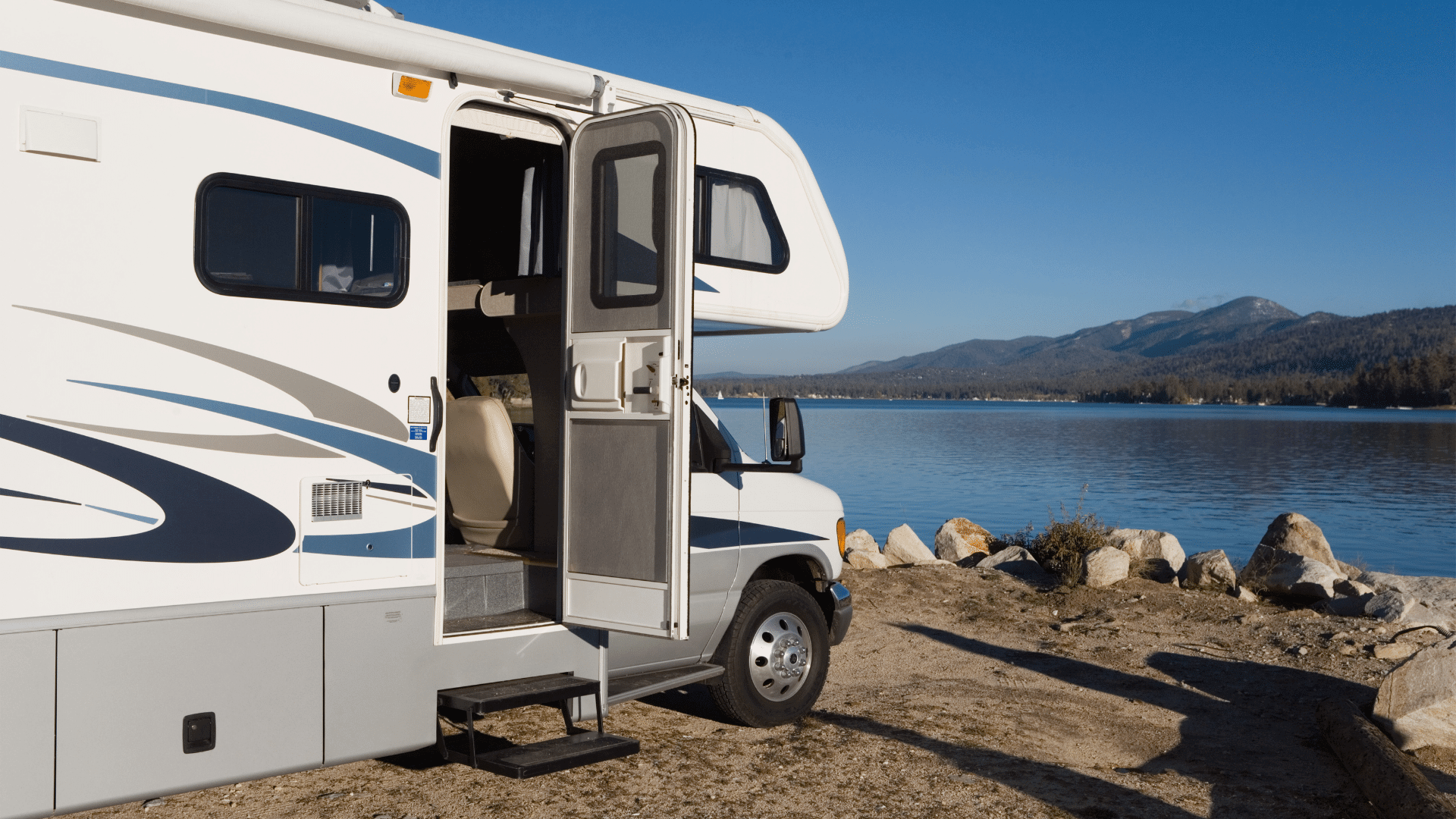Table of Contents Show
You’ve decided to hit the road! But what style of camping trailer is best for you? What the heck is a fifth wheel (5th wheel)? Why would you want a 5th wheel vs. a travel trailer vs. a motorized/Class A/B/C?
Fifth Wheel vs. Travel Trailer: Similarities
A fifth wheel (hooks in the bed of the pickup over the rear wheels). A travel trailer (hooks to your bumper) are both detachable from your tow vehicle. You can set up camp and then go explore without unhooking everything.
Also, you can then go sightseeing in your tow vehicle instead of having to rent, Uber, or tow a car behind a motorized RV.
Usually, a 5th wheel or travel trailer is cheaper than a similarly outfitted and aged motorized RV, but some can be quite luxurious! Both styles of towable trailers have less maintenance than a motorized bus or RV. You are taking the engine and transmission part out of the equation.
However, you may still have to purchase an expensive tow vehicle if you don’t have one already. Sometimes, if you also use a tow vehicle for other purposes, this is a benefit.
On non-camping days, you can use the truck for work, around the property, to tow a boat, move household goods and landscaping, etc. at the house. You can’t do that with a Class A!
It may be easier to store and park two separate units as well. In addition, camping spots are rarely off-limits for the smaller trailers, when they might be for a larger motorized unit that isn’t as agile. Should you buy used or new?
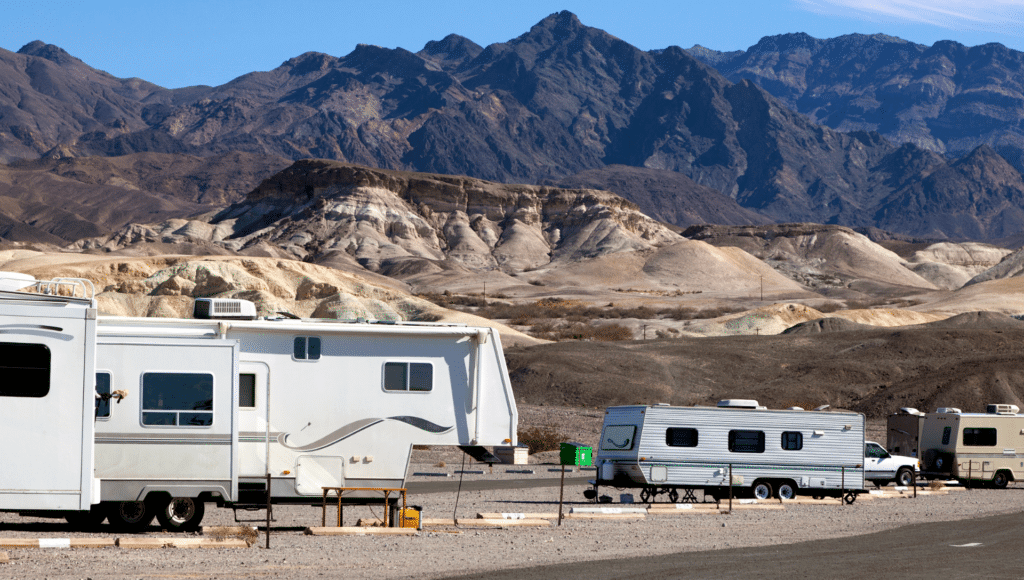
5th Wheel vs. Travel Trailer: Differences
Fifth wheels are generally much bigger than travel trailers. Travel trailers can be as small as 16 feet and go upwards to mid 30 feet. Fifth wheels usually start around 19 feet (fiberglass Scamp) that weigh just over 2000 pounds, and go over 40 feet and over 25,000 pounds!
Prices can start at $20,000 and go near or over $150,000 depending on size, and features. Features such as winter packages, solar, triple axles, extra ac units, and upgraded luxury finishes like real wood, granite, extra HD TVs, electronics packages, and fancy features in the outdoor kitchens.
Travel Trailer Pros
Travel trailers have their pros! Smaller units are easier for off-roading and boondocking access as they fit into smaller spots. Lower height clearances are great for treed areas.
They aren’t as tall as fifth wheels, so you won’t be losing your air conditioner on low limbs. You don’t lose access to your entire truck bed. You can store larger items in the bed without hindering any movement or hitch access like with a bed-mounted fifth-wheel setup.
In addition, travel trailers generally cost much less than fifth wheels, and they weigh a lot less. They are also easier to store as you can get them into smaller lots and lower roof covered storage units or sheds. Many people can store their travel trailers at their homes, while fifth wheels may require costly off-site storage.
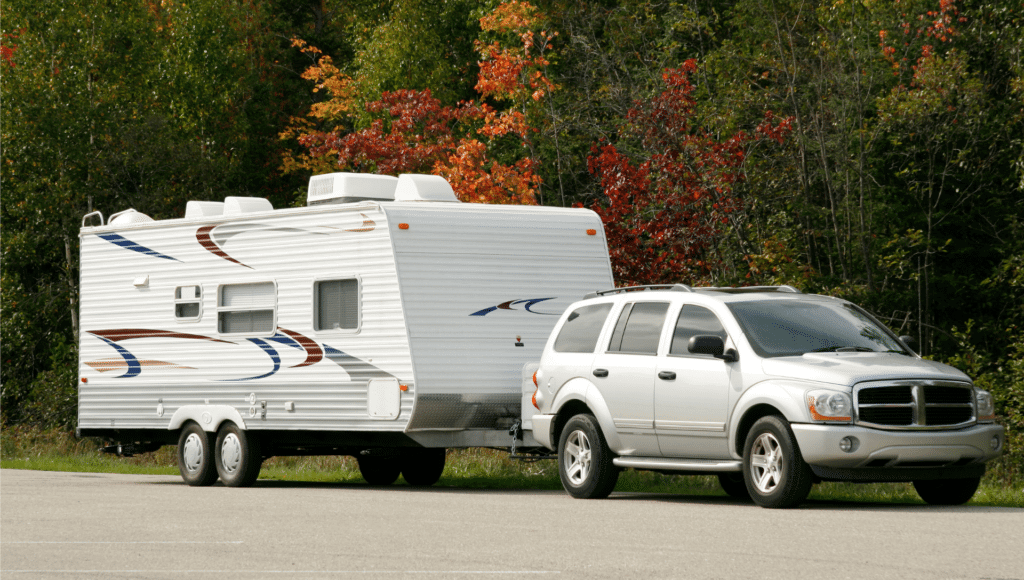
Travel Trailer Cons
Travel trailers hook to your tow vehicle bumper. This causes all the weight to be “tail wagging the dog” and it will pull you back and forth over bumps in the road, as well as cause sway due to passing semis, wind, road conditions, and more.
Putting additional sway bars, weight distribution hitches, airbags, etc. on the rig can help mitigate this, but it is the nature of the beast when the weight is behind the wheels of the tow vehicle. In addition, many people think that backing a bumper pull is harder than a comparable fifth wheel.
Fifth Wheel Pros
The biggest pro to a fifth wheel is the ease of towing. If you’ve pulled both, rarely do people go back to a bumper pull. By putting the weight in the back of the truck over the drive wheels, the ride is much smoother, without the tugging motion of a bumper pull.
You also do not get the sway, you increase the smooth ride from semis passing and wind, and are much more stable on the road in any conditions. In a 5th wheel vs. travel trailer, the different turning radius makes it easier to back and maneuver the fifth wheel into tight spaces.
Fifth wheels have multiple levels so you usually get a separate space for a master bedroom in the gooseneck area. They are also usually taller units, which allows for higher ceiling heights and larger basement storage areas for all your gear.
Often, fifth wheel units also have the stability for more slide outs, upgraded comfort features, and more flexibility in layouts. They fit more usable space in the same length due to doubling up over the truck bed.
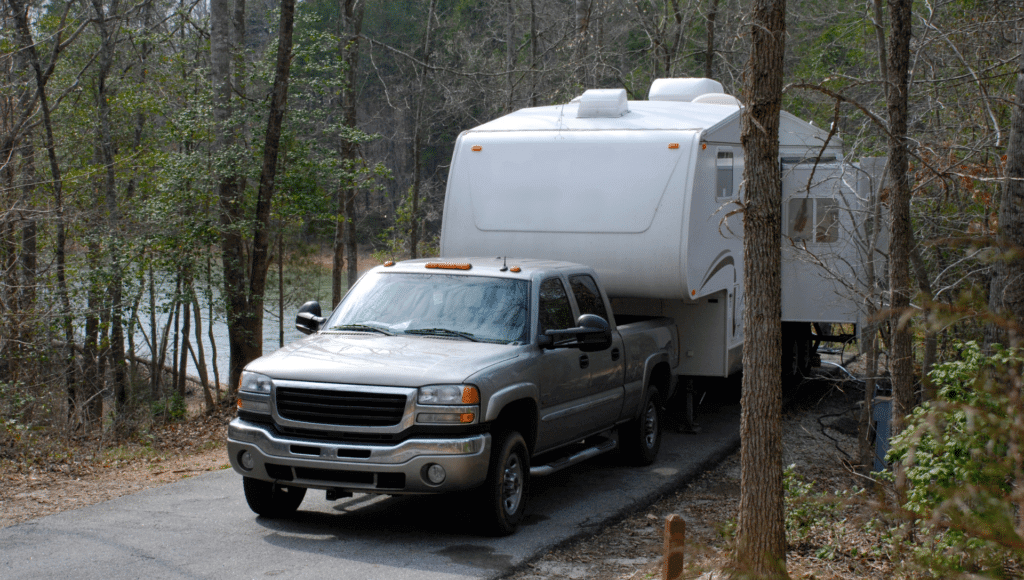
Fifth Wheel Cons
In order to pull the Fifth wheel, you need a large pickup. There isn’t an SUV option here, and most require at least a 3/4 ton pickup in order to safely tow, taking into consideration pin weight (back of the truck), payload limits, and towing limits. Fifth wheels are also large units, which may be bigger than your storage space. They also tend to be taller than travel trailers, requiring higher clearance from trees, rooflines, power lines, and storage buildings.
Fifth-wheel trailers also tend to be more expensive to purchase and maintain than travel trailers, to begin with. They are also usually heavier.
Get Your Free RV Buyers Guide Today!
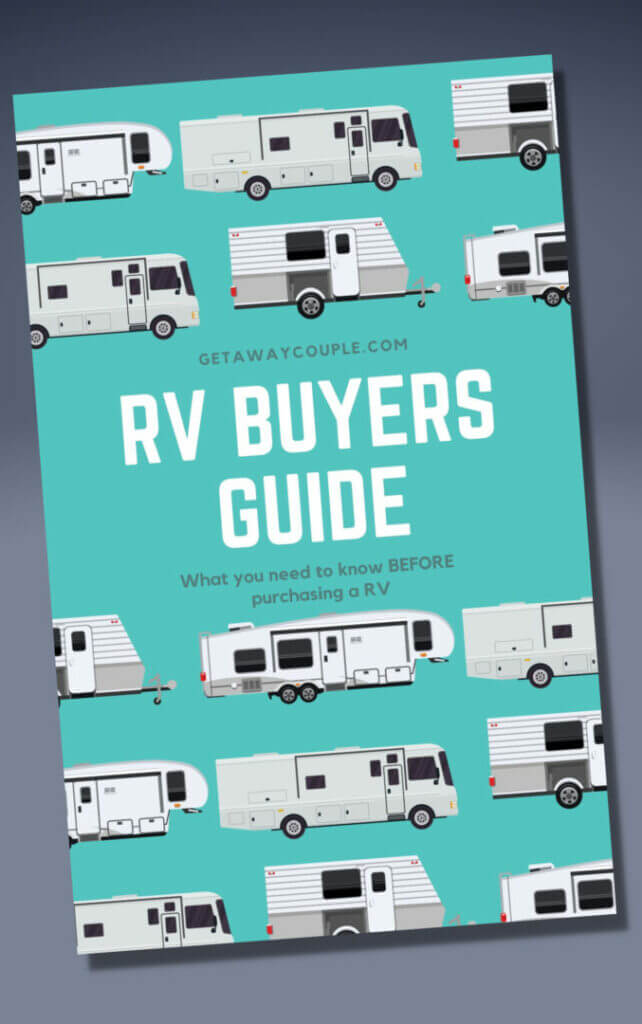
This valuable ebook will guide you step-by-step on how to purchase your first RV and save up to 30% off MSRP! Sign up for your FREE guide today!




